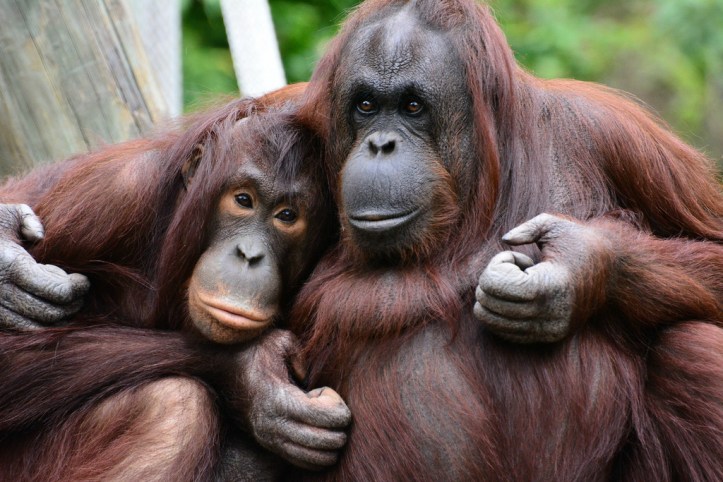Discovering five keys to having healthy and lasting intimacy…
What makes one “human”? To a biologist, humans are biological life forms: mammals, primates, and homosapiens by classification. Philosophers would weigh in, adding that it is rational intellect—one’s ability to think, to question, to reason, and to decide—which makes one human. Engineers might state that humans process a unique creative ingenuity—the ability to take raw materials, create, plan, and build. Psychologists might talk about human speech, or stress that it is humanity’s self-awareness—the ability to pretend, to have a theory of mind, or to have secondary emotions (like pride, empathy, guilt, etc)—which makes one human. Some might argue that what makes a human is the desire for goodness and beauty, reflected by people expending energy for the “nonproductive” parts of life like religion, art, music, and fine foods.
Without ruling out these answers, psychologists and researchers John Cacioppo and William Pattrick, in Loneliness: Human Nature and the Need for Social Connection, join many scientists, scholars, and theologians who believe that it is humankind’s capacity for close relationships which makes it unique.
To be human means to have close relationships.

Many species seek partnership and socialization. However, humans not only need relationships, but desire to have relationships which operate at a significant depth. Most often, this is called “love.” Theologian Bradley Holt writes, “At the core…we long to be loved, to love, and to live in a universe characterized by love.” Psychologist James Beck writes, “The widespread existence of love among humans suggests that it is an instinct or at least a very basic human need.”
Humans show this love in exceptional ways: they oblige themselves to others, feel pride in others, forgive others, pray for others, empathize with others, serve others, are moved at the pain of others, and die sacrificially for others—even for those who are not directly related to them.No other animal does these things; humans are the only species to show a “need” for love. This desire for loving relationships goes beyond a simple wish for close friends or a mate, but speaks of a deeper desire for a specific kind of love.
Researchers most often call this kind of love “intimacy,” or “intimate love.” Intimacy is “most essentially a sharing of innermost qualities.” The word intimate is derived from the Latin word intimus, which means “inmost.” According to the Webster’s dictionary, it broadly means, “inmost, essential, most inward, internal.” Some synonyms for intimate are familiar, loving, dear, close, friendly, cherished, profound, exhaustive and joined. In Spanish, French, and Italian, the root word for intimacy connotes “a deep understanding of another person that is revealed in private.” Perhaps it is the depth and the privacy of this relationality which skews the English use of the word intimate toward romance or sexuality. Connecting in nakedness, vulnerability, and exposure are taken as a part of sexuality. Even the human phrase, “Let’s stay in touch” speaks to the desire to relate and connect—be touched—in some way; intimacy is both proximate and vulnerable. In fact, sexual intimacy illuminates that one has a desire for a deeper kind of intimacy. To be human is to yearn for this sense of deep, heart-to-heart intimacy. Intimacy is not really about sex. But it, too, is naked and exposed.
 Stanford primatologist Robert Sapolsky comments, “Only humans lie side by side after mating, gaze into each other’s eyes, and talk with each other. And they will do it night after night. There is nothing like this in all the animal kingdom.” Researcher Robert Sternberg writes, “The intimacy component refers to feelings of closeness, connectedness, and bondedness in loving relationships. Intimacy includes those feelings that give rise, essentially, to the experience of warmth in a loving relationship…whether that relationship is toward a parent, a sibling, a lover, or a close friend.”
Stanford primatologist Robert Sapolsky comments, “Only humans lie side by side after mating, gaze into each other’s eyes, and talk with each other. And they will do it night after night. There is nothing like this in all the animal kingdom.” Researcher Robert Sternberg writes, “The intimacy component refers to feelings of closeness, connectedness, and bondedness in loving relationships. Intimacy includes those feelings that give rise, essentially, to the experience of warmth in a loving relationship…whether that relationship is toward a parent, a sibling, a lover, or a close friend.”
To be fully human means to have intimate relationships.
So what are the keys to developing intimate relationships? After surveying hundreds of studies on relationships, marriages, and human connection for 10 years and counseling several hundred couples, I have found that five “intimacy factors” seem to repeat over and over. People who have these five factors in-depth have rewarding and intimate relationships. People who are lacking in one or more of these factors almost never have healthy intimate relationships.
 The five intimacy factors are:
The five intimacy factors are:
- Distinctness This is the willingness to be independent and have appropriate boundaries, what Carl Jung called “individuation”. People who are distinct know themselves, and avoid boundry-less relationships and enmeshment.
- Connection This is a willingness to reach out and move toward another, to seek out and gently pursue another. Healthy connection stands in opposition to withdrawal, escaping, and silence.
- Self-disclosure This is the willingness to be vulnerable and share the “inmost” parts of oneself, to take appropriate emotional risks with another. People who are bad at self-disclosure default to protecting, withholding, concealing, and lying.
- Acceptance This is the willingness to accept another as fully as possible, especially their self-disclosures and weaknesses. It includes offering grace and forgiveness instead of rejection or judgment.
- Mutuality This is the balanced back and forth process involving both people. Intimacy requires a give and take between partners, like a game of catch. Both must be willing to listen and to share. Both must be willing to risk and to forgive. Relationships that are not mutual in intimacy often feel controlled, one-sided, inexhaustibly circular, or overly demanding.
To be fully human means to have intimate relationships.
Humanity dies without intimacy. The bad news: all of these five factors are required for healthy intimacy, and they don’t come naturally. Looking at the five factors, how are your friendships and close relationships doing? Which factors are you strongest in? And weakest in? The good news: all of these five intimacy factors are “skills sets” which research shows can be learned and grown. They take courage and practice and hard work (and sometimes a little coaching). The really good news: so long as you’re breathing, you’ll have a chance to be more fully human.
[…] Fifth, take a little risk. Get involved in some activities. Inaction is proven to breed depression. What are you interested in? Join a sports league or take a class. Self-defense or Scuba or art. Join a book club. Call up a local shelter and volunteer serving meals. Help build a house with Habitat for Humanity for one day. Visit a church, and stay for a doughnut. Take a deep breath and talk to someone, even simply saying, “Hi. Isn’t it a beautiful day?” Affinity groups or groups for social anxiety can even be found online. Don’t go just hoping to make friends. Try to go with no expectations whatsoever and to enjoy yourself regardless of what happens. Just do something with some people. Why? Read about Intimacy—And How to Get it. […]